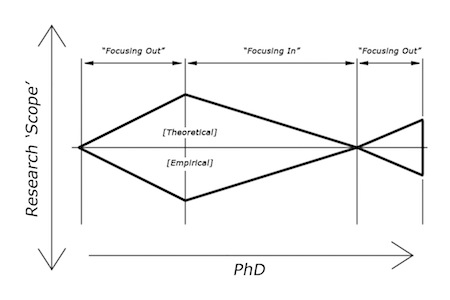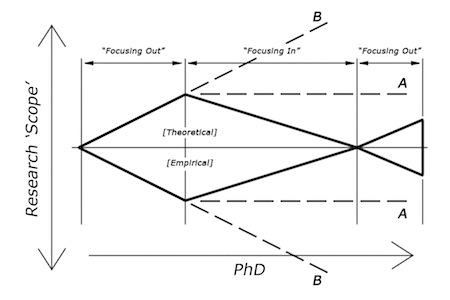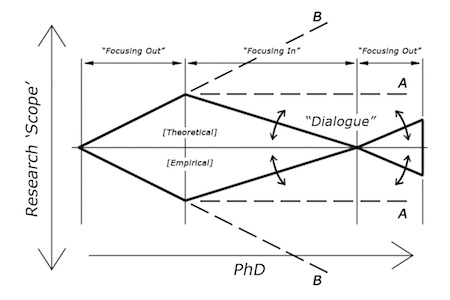Reflecting on #RP2Nott
Monday, November 14th, 2011I’m a bit late with this follow up to our Research Practices 2.0 event a couple of weeks ago, but it’s been good to allow a chance to reflect on the several things that struck me the most on the day:
Can we stop talking like academics?
Most academic practices reflect the most basic human activities, but we try our best to make them sound otherwise. Even the most generic academic terms are loaded by disciplinary bias and individual assumptions. PhD students (and I include myself here) are amongst the worst culprits as it consolidates the necessary enculturation process inherent in becoming legitimised as an academic (you see, there I go again).
Using broad terms are useful starting points though not always workable. For example, in the morning session I helped facilitate, one table interpreted data collection as general academic information sourcing rather than in the narrower methodological sense. So, terms like collecting stuff, exploring ideas, explaining things etc. are useful to cut through the bullshit.
Tools vs. Practices
Social media is itself a problematic term. Social media constitute a range of different tools and platforms. Whilst some provide defined parameters of use that may be attributable to recognisable activities, many do not. As the Visitors and Residents framework suggests, understanding the effectiveness of social media can be dependent on whether they are perceived as purposeful tools for specific academic activities, or as flexible, social and cultural spaces for participation, enquiry and critique.
Despite practice-based approaches such as those we promoted at the event, there are those who inevitably lean towards the instinctive tool-focussed ideologies inherent in learning new technology, and therefore partly quantify the success of workshops or events on box-ticking exercises such as the collaborative listing of social media we employed in the first session. Some attendees appreciated the opportunity to explore some of the social media we discussed in the morning session in the drop-in IT workshop after lunch.
Expectations and Assumptions
To me, the success of an event like this is partly dependent on the dynamic between how it placates and challenges both (a) expectations of the event, and (b) assumptions of practice – in this case, not only using social media, but also what it means to ‘do a PhD’. And, as Jen’s excellent account of her workshop experience suggests, this is equally true for facilitators. The difficulty is; that dynamic is different for each individual who participates.
Thinking practically, this might be best served by developing an initial dialogue necessary to gain an understanding of these collective expectations and assumptions, and adopting a flexible approach that can adapt to changing needs. Basically, there are as many ways to do events like this, as there are events. If we go away not wanting to rip it up and start all over again, we are probably doing something fundamentally wrong.




